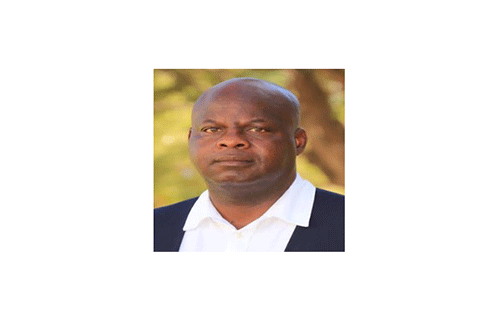Lucas Tshuuya
Identification is one of the means of identifying and/or individualising something or someone.
To differentiate one thing from another can be achieved by employing means of identification, applicable either by name, identification mark, trademark, fingerprints and scientific means of identification, such as Deoxynucleic Acid (DNA) and forensic odontology, in some instances like after the death of someone.
According to the Births, Marriages and Deaths Registration Act 81 of 1963, once a child is born or stillborn, a notice of birth occurrence should be given to the registrar within 14 days by the parents or occupier of a building where such birth occurred.
To register a birth, all that is needed is an occurrence of birth record from the maternity ward of a hospital the birth occurred – or if the child was born in a rural area, a letter from the traditional authority of the area where the child was born is required. In some instances, church records from the congregation where the child’s parents congregate are required.
Interestingly, no further requirements are necessary to positively identify that child and/or link the child to the birth certificate issued by the Ministry of Home Affairs, Immigration, Safety and Security.
The Namibian Constitution under Article 15 provides that a child is entitled to a name from birth for identification purposes.
Once the child’s birth is registered, the child grows up using a birth certificate as a means of identification until attaining the age of 16 years, pursuance to the Identification Act 21 of 1996, and would then apply for an identity document (ID). Only then fingerprints would be taken to link the child to the ID, and the child’s fingerprint images would be kept in the national population system for life.
Once the ID is produced and ready for collection, the child can collect the ID. It is not necessary to take fingerprints from that child again for matching purposes with the produced ID. That child is required to only sign off the ID on the ID collection registers.
Here, it is where chances exist that anyone who happened to get hold of proof of registration card (temporary ID) of another person and present it at the Ministry of Home Affairs as his/her own would be able to collect that person’s ID and start using it, e.g by applying with it for admission at school, for employment, loans and/or for driving licenses.
In fact, there are incidents recorded, where some people used other people’s IDs for purpose of getting married.
Some people have been arrested by the police after committing crimes, tried in courts and sentenced to imprisonment under other people’s IDs – and would be known and identified with such ID – whereas, in the real sense, such IDs belong to other people, simply because the means of identification applicable have loopholes to be abused.
Normally, public officials use only visual screening to identify individuals because there is no scientific system to positively identify persons as expounded above.
Immovable and movable assets, such as houses, aircraft, firearms, vehicles and ships – to mention but a few – can be identified by unique serial numbers, or VIN embossed or engraved upon them to individualise them for easy identification so that they are not mixed-up with similar assets.
In developed countries, a person is positively identified by scientific means – even after death.
There have been reports in Namibia of people using others’ IDs to seek employment, apply for driving licenses, loans, admission to schools, etc. and succeeded because there is no system in place to detect such anomalies.
These incidents are usually detected afterwards when the perpetrators have already gotten opportunities to their advantage while using others’ IDs. Once detected, public officials start imputing charges of misrepresentation or impersonation against the suspects when harm is already caused by such propensity. It becomes difficult to remedy the situation after the effect.
Such anomalies occurred at workplaces such as in the Namibian Defence Force, Namibian Police, Ministry of Education (ghost-teachers) and at CDM now Namdeb to mention.
This situation becomes insoluble when these individuals resign, retire or pass on while using others’ IDs, as administrative officials battle to process such individual benefit claims.
Namibian authorities should consider the review and/or amend its means of identification and introduce a scientific means of identification of persons to avoid this conundrum, as it causes risk and economic disorder because anyone who picks up another person’s ID would start using it as if it were his/her own.
* Lucas Tshuuya is a Police Science graduate from NUST and an LLB graduate.



